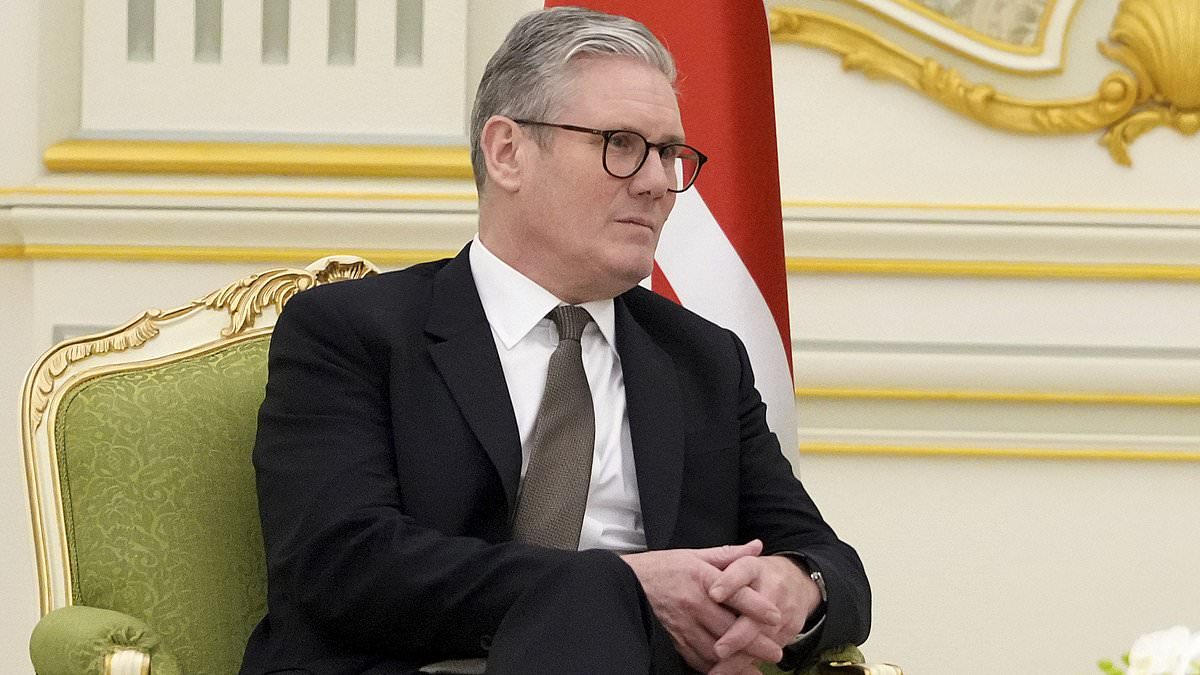Ministers were in disarray last night over whether to remove the Islamist group at the heart of the Syrian revolution from the UK’s terrorist list.
Cabinet Office minister Pat McFadden said the Government was looking to take a ‘swift’ decision on lifting the ban on Hayat Tahrir al-Sham (HTS) which has emerged as the leading player in the removal of tyrant Bashar al-Assad.
The move would allow ministers and officials to engage with the group and its leader Abu Mohammed al-Golani.
But his comments triggered a backlash, and Sir Keir Starmer said on Monday night it was ‘far too early’ to decide whether to engage with a group which began life as an offshoot of al-Qaeda.
Downing Street also insisted there were no plans to allow Isis bride Shamima Begum, who is living in a camp in Syria, to return to the UK.
HTS was designated as a terrorist group in 2017. At the time the Home Office declared it to be ‘an alias of al-Qaeda’.
But in a rare statement on the issue on Sunday, the Home Office said the group’s relationship with the terror organisation founded by Osama bin Laden ‘has changed’. A spokesman said there had been ‘a splintering between the two organisations’ in recent years.
Former MI6 chief Sir John Sawers said HTS now appeared to be acting as a ‘liberation movement’ and should be removed from the terrorist list. Sir John said it would be ‘ridiculous’ if ministers were barred from engaging with a major power broker in Syria because of its history.
Mr McFadden suggested that a decision was imminent.
He told the BBC that Golani, a former al-Qaeda and Isis fighter, had ‘distanced himself away from some of the things that have been said in the past. He is saying some of the right things about the protection of minorities, about respecting people’s rights. So we’ll look at that in the days to come’.
He added: ‘I think it should be a relatively swift decision so it’s something that will have to be considered quite quickly, given the speed of the situation on the ground.’
His comments came despite grave concerns about the nature of HTS and the true intentions of its leader.
Emily Thornberry, Labour chairman of the Commons foreign affairs committee, said it would be ‘premature’ to engage with HTS given the group’s past.
Foreign Secretary David Lammy told MPs that the government would ‘judge HTS by their actions’, adding: ‘We are monitoring closely how they treat civilians in areas they control’.
But he added: ‘al-Qaeda killed hundreds of British citizens in barbaric attacks. That was the original reason this organisation was proscribed.’
HTS is also designated as a terrorist organisation by a string of other countries, including the United States which put an £8 million bounty on his head.
Whitehall sources suggested that any move to normalise relations with HTS would follow discussions with allies.
The PM last night insisted that a decision on the issue was not imminent. Speaking in Saudi Arabia, he said there was ‘no decision pending at all’.
Mr Assad’s British wife Asma is believed to be with him in Moscow, but the Prime Minister declined to say whether he would consider stripping her of her UK citizenship, adding it was ‘too early’ to say.
The Home Office declined to comment on the proscription of HST.
Only a handful of groups have been removed from the banned list in the past. In each case they formally requested a change in the law.
It is not clear whether Home Secretary Yvette Cooper has the power to remove them from the list unless a request is made.
